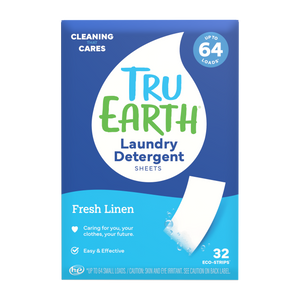Dealing with the unpleasant odor of skunk spray in your home can be challenging, but fear not – there are effective and straightforward solutions to eliminate the smell.
In this guide, we'll explore the causes of skunk odor, steps to take immediately after an encounter, and a variety of remedies to ensure your home is fresh and odor-free.

Understanding Skunk Odor
Skunk spray is a potent and persistent scent due to a chemical compound called thiols. Understanding the nature of skunk odor is essential to effectively combat it.
Thiols, the main culprit, are sulfur-containing compounds that contribute to the skunk's potent defense mechanism. The unique structure of these compounds is what makes skunk spray notoriously difficult to neutralize.
Immediate Action Steps
Acting promptly is important when dealing with skunk odor. One critical step is to address contaminated clothing immediately by removing and washing them separately. Additionally, minimizing the time spent in the affected area can prevent the odor from permeating further.
Ventilation and Air Circulation
Battling the stubborn scent of skunk spray in your home requires a keen focus on ventilation and air circulation—essential tools that facilitate the quick removal of this unwelcome aroma. By mastering effective ventilation techniques, you can significantly speed up the process of making your living spaces fresh once again.
Opening windows is one of the simplest yet most effective methods to introduce fresh air into your home and push out the skunk odor. However, merely opening windows might not be enough; employing fans strategically enhances this effort exponentially. Positioning fans near open windows or doors helps create an airflow pathway, pulling in clean air while pushing out foul-smelling ones. For optimal results, set up fans so they direct air towards exits, effectively escorting the skunk smell out.
Beyond manual ventilation efforts, technological solutions offer additional support in purifying your indoor atmosphere from persistent odors. Air purifiers come equipped with filters designed to capture a wide range of airborne particles—including those responsible for carrying skunk smells throughout your house. Look for models featuring activated carbon or charcoal filters; these materials are particularly adept at absorbing and neutralizing odors.
Similarly beneficial are dehumidifiers which reduce moisture levels indoors—a factor that can amplify unpleasant scents by allowing odor molecules to linger longer in moist air rather than dry environments. By maintaining a drier atmosphere inside your home through using dehumidifiers especially during humid seasons or climates—you make conditions less hospitable for lingering odors.
Combining these strategies ensures comprehensive coverage against skunk odor infiltration within homespace borders—opening avenues (and windows) toward reclaiming freshness fastly after such stinky invasions occur thereby restoring comfortability amongst living quarters swiftly and effectively indeed!
Natural Deodorizing Solutions
Explore natural remedies and deodorizing solutions to neutralize skunk odor. From DIY sprays to homemade cleaning solutions, discover effective ways to eliminate the smell using common household items.
Let’s take a closer look at eco-friendly options that are safe for your home and the environment. Baking soda and vinegar, known for their odor-absorbing properties, can be combined to create a powerful cleaning solution for affected areas.
Commercial Odor Neutralizers
Commercial odor neutralizers are designed to tackle stubborn smells, including skunk odor. This section reviews popular products available in the market, discussing their effectiveness and application.
Find recommendations for reliable commercial solutions to expedite the de-skunking process. Enzyme-based cleaners, specifically designed to break down organic compounds, prove effective in eliminating skunk odor at the molecular level.
Preventing Future Encounters
Prevention is the best strategy to avoid future skunk encounters and their lingering odors. Installing motion-activated lights or sprinklers can deter skunks from venturing near your home. Moreover, maintaining a well-trimmed yard and removing potential hiding spots, such as wood piles or dense shrubbery, discourages skunks from settling in your vicinity.
Regularly inspecting and repairing any openings in fences or around your home's foundation acts as an additional barrier against skunk intrusion.
Dealing with Pet Odor
If your pet has been sprayed by a skunk, let’s take a closer look at how to effectively de-skunk your furry friend. From pet-friendly shampoos to DIY bathing solutions, ensure your pet is clean and odor-free.
A mixture of hydrogen peroxide, baking soda, and dish soap is a commonly recommended and safe solution for bathing skunk-sprayed pets.

A Home Free from Skunk Odor
Eliminating skunk smell from your house requires a combination of immediate action, proper ventilation, and the use of effective deodorizing solutions. Whether you opt for natural remedies, commercial products, or seek professional assistance, following these detailed steps will help you reclaim the freshness of your home after a skunk encounter.
Additionally, implementing preventative measures will reduce the likelihood of future odorous incidents, ensuring a skunk-free and pleasant living environment. Remember, the key is swift action and persistence in treating both immediate and potential issues related to skunk encounters in and around your home.

